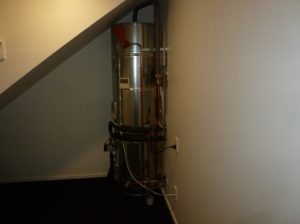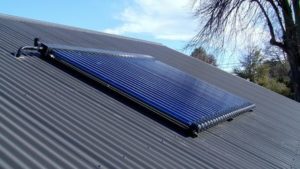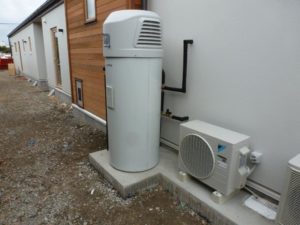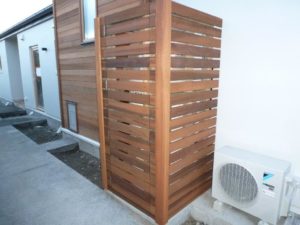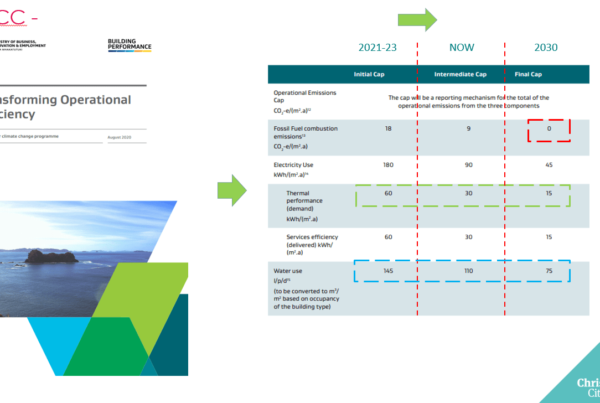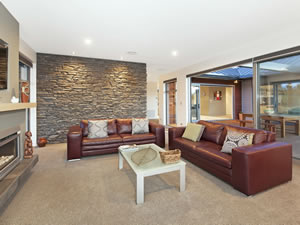Once upon a time an electric hot water cylinder was the automatic choice for hot water. 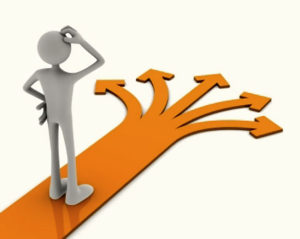 Now, however, the demand for lower running costs, environmental concerns and continuous technological improvements has provided us with more choice. However, choice requires a decision, and how do you decide?
Now, however, the demand for lower running costs, environmental concerns and continuous technological improvements has provided us with more choice. However, choice requires a decision, and how do you decide?
This blog looks at four types of hot water systems, and some considerations for each type. The decision will rest largely on your unique requirements and goals.
Read on to find out more……
An average family in New Zealand using a standard electric hot water cylinder, spends $700 per year on heating hot water alone, this equates to on average a third of our power bill.
A 10 minute shower can set you back over a $1 each time.
One way to review the efficiency of a hot water system is through the ‘coefficient of performance’ (COP). Its basically the amount of hot water produced divided by the energy put into the system, the higher the number the better. This figure also includes the energy required to keep the water warm within the system.
An average electric HWC may have a COP of 0.7 but this can be increased to 0.9 with a well insulated cylinder and pipework. To achieve a COP greater than 1 the energy must come from somewhere else.
A COP of 3 is achievable for a quality solar hot water system.
A COP of 2 can be achieved with a high performing hot water heat pump.
However, the COP should NOT be used on its own as there are many factors affecting a systems performance, cost and sustainability. These all need to be weighed up by the homeowner. This includes lifestyle, household size, upfront cost v running costs, and considering the main driver for your decision (cost or environment).
Electric
Uses mains electricity to heat water in a storage cylinder.
Performance:
- An average family spends $700 a year on heating water alone. $1.15 per 10 minute shower using a standard electric HWC.
- Instant hot water supply is more energy efficient as it only heats water when it is used and eliminates heat loss from cylinders and pipes. However, instant HW is typically used when electricity is charged at peak rate, and it requires heavy duty wiring for large flow rates. It’s recommended as a supplementary system where the outlet a long way from the main hot water system.
- Enamel cylinders cannot take water temps over 70°C, potentially from long wetback stoves or solar HW systems. Stainless Steel can take higher temps but are dearer.
- An electric hot water cylinder can be a good option for using surplus power from PV panels to heat hot water.
- Some can have a wetback added to them to use heat from a wetback wood burner.
- Mains supply wont run out, but risks of using more than you need because of this.
Cost:
- Relatively low upfront cost (eg $1260 for 180 ltr vitreous cylinder model, more for stainless steel)
- More expensive to run than most other options.
- Some electricity suppliers offer a night rate. Can put hot water on a timer switch to only heat water at night and then store for later use. Larger households may run out.
- Instant hot water systems typically use electricity charged at peak rate and requires heavy duty wiring for large flow rates. Recommended as a supplementary system where the outlet a long way from the main hot water system.
- There are line charges and connection fees regardless the amount of electricity used.
- Good option cost wise for households with low to moderate amounts of hot water use.
Environment:
- Fossil fuels and gas are still used to produce electricity when hydro cant keep up with demand at peak times.
- Conversion and transmission losses from hydro dam to wall socket can be quite high.
- By law all storage heaters must heat the water to over 60° C to kill Legionella bacteria but then add cold water to the outflow to lower its temperature to 55° This is energy inefficient.
Gas
Use mains gas or LPG to heat water in a storage cylinder similar to a conventional HWC. A more efficient option is instant gas water systems (using either mains or LPG) where no storage cylinder required.
Performance:
- Instant gas water systems from mains supply or LPG provides hot water only when hot water tap is turned on. No storage cylinder so no energy losses from keeping water in a tank hot.
- Instant systems do not require the water to be heated to 60°C so better efficiency than where storage required. Instant systems can be 95% efficient.
- Gas less efficient at heating water than electricity.
- Gas hot water storage systems have a quicker heat recovery time than a comparable electric HWC.
- Mains or instant gas hot water systems require an electrical supply so wont work during power cuts. Gas HW cylinders however, generally don’t need an electricity supply to work.
- LPG bottles require replacing – can run out. Mains supply wont run out, but risks of using more than you need because of this.
- Water temperature set at a control panel to avoid scalding.
Cost:
- Gas itself is currently cheaper than electricity.
- Gas cylinders dearer to supply & install than electric models (eg $1670 for a 190 ltr model)
- LPG costs 16 cents/kWh plus $128 per year for hire of two cylinders. Compared to electric or reticulated supply, it is not as cost effective if no other gas appliances in house.
- LPG cost effective when have other gas appliances in house as well as HW.
- Natural piped gas is 8.5cents/kWh plus $1 /day distribution charge -this is cheaper than both electric and LPG gas.
- Natural piped gas – distribution charge regardless of amount used.
- Good option for smaller household, especially if other gas appliances.
Install (Where cylinder):
- Cylinders mounted outdoors unless there is a flue (required to dispel combustion gases inside).
- Can not wrap a gas HWC as unsafe
Maintenance:
- LPG bottles require replacing – can run out.
Environment:
- The largest effect on the environment – CO2 emissions higher than electricity.
- By law all storage heaters must heat the water to over 60° C to kill Legionella bacteria but then add cold water to the outflow to lower its temperature to the control panel setting. This is energy inefficient.
- Electricity still required for operation of reticulated supply and instant hot water systems.
Solar
Roof mounted collectors use sunlight to heat water which is then siphoned or pumped to a storage cylinder. When sun is not shining. Gas or electricity is used to heat the water.
Performance:
- If the correct system, installed well, is used , up to 75% of hot water heating can be achieved.
- Issues if system not designed and installed correctly. Ensure the ability to check if it is working properly is discussed with suppliers.
- Day yo day performance subject to weather – need back up system.
- May not work well in winter or very cloudy areas. Systems have boost functions so an element will kick in to produce enough energy to heat your water. Still need to consider pros and cons of these back up hot water heating systems too (electric/gas).
- Works better if you have a north facing roof not subject to a lot of shade
- Not recommended for low hot water users. Cost v benefit.
- Could work well for high use/large families.
Cost:
- Sunlight is free (costs come from electric or gas top ups)
- Lowest running costs.
- Solar heating can complement wetbacks. This means hot water can be heated when log fire is running, which may coincide with when solar energy is insufficient to heat all the water required (evenings/winter).
- Expensive to supply & install (from $5800). (heat resistant cylinders needed as water can reach boiling point).
- Still need to keep water warm in cylinder.
- This option better for larger households.
Install:
- Issues if system not designed and installed correctly. Ensure the ability to check if it is working properly is discussed with suppliers.
- Consent required for new home, and may be required to retrofit depending on location.
Maintenance:
- Tubes require regular cleaning to ensure work efficiently.
Environment:
- Parliamentary Commissioner for the Environment states that in terms of environmental effect, solar is not as environmentally friendly as people think. Although it uses much less energy, when peak demand for hot water is highest this coincides with when solar requires a boost (winter and darkness) – unfortunately its these peak times that more gas and coal is used by power stations to top up the energy produced by hydro.
Heat Pump
Efficiently extract heat from outside air to heat water.
Performance:
- Quite new.
- Reduces energy costs by 50-70% compared to a standard mains HW for an average family. More savings if larger family.
- Families with 4 or more people get most benefit from these systems compared to a traditional mains HWC.
- Not best option for low usage (2 or less people) as performance declines as amount of hot water reduces.
- HP works most efficiently if temperatures outside above 6-7 degrees Celsius. Work 2-3 times better than a standard electric HWC. Become less efficient with colder temperatures. However, the most efficient systems outperformed others particularly at lower air temperatures. So, choose system carefully.
Cost:
- Relatively dear to supply ($4900 for a good unit) plus install.
- Very low running costs – Second lowest behind solar.
- Can be put on a controlled electricity supply to get a lower electricity price.
- Still need to keep water warm in cylinder.
- Some HWHP are compatible with Solar PV panels to take advantage of solar power to run the actual HP unit.
- Good option for larger households.
Install:
- The units can be installed outside as well as inside.
- Can be noisy so install external unit away from bedrooms.
- Easier to install than solar as they require less pipework and no solar collector.
Maintenance:
- Heat pump units require regular cleaning of filters. Easy to access as units on ground.
Environment:
- Compared to solar they use more energy to run but use a lot less than electric HWC. No gas or alternative energy source required.
- New heat pumps have ozone friendly gases.
Family size considerations
A large family would do better to choose a dearer system to supply and install but has cheaper costs to run. If cost is the main driver then a retired couple may benefit more from gas or electric as their hot water usage is a lot less. However, if sustainability is a driver then consideration of either solar or HWHP is suggested.
In Conclusion
Many factors affect performance, cost and sustainability. These need to be weighed up by the homeowner. They include lifestyle, household size, upfront cost v running costs, and consideration of the main driver for the decision (cost or environment). It comes down to personal preference, but it is important to decide early on as heating and hot water supply are an important part of the holistic design process.
For more information on other ways to achieve a more energy efficient home please download our FREE guide here!


